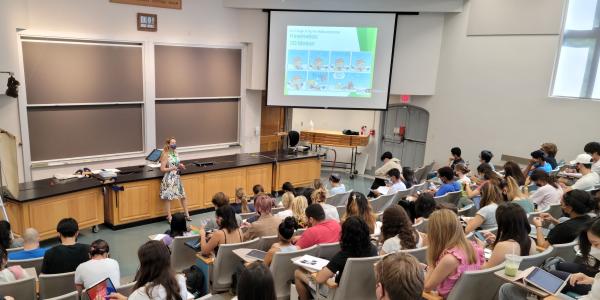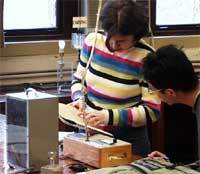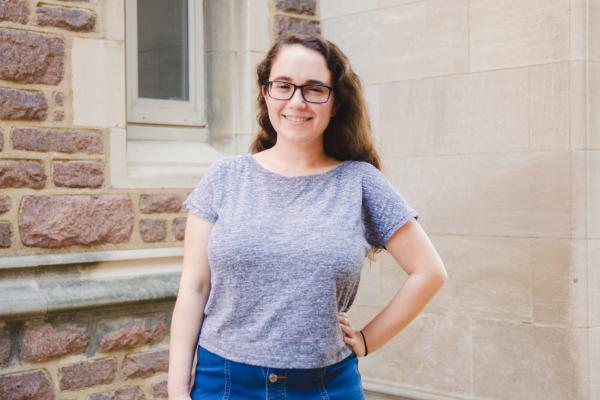Information about Labs
Introductory Labs
Introductory labs complement Physics 191/192 and 211/212. The labs comprise individual experiments describing general physics principles covering a range of topics including mechanics, light and optics, and electricity. Many of the experiments are designed to improve understanding the physics of everyday life, such as bicycles, baseball, and speakers.
The lab sessions are monitored by graduate students and staff. Typically the instructor briefs the students on the details of the experiment for the day's session and then breaks the group up into teams, assisting as necessary.
Advanced Labs
The upper-level laboratory courses are Optics & Wave Physics (Phys 316), Electronics Lab (Phys 321), Physical Measurements Lab (Phys 322), and Biophysics Lab (Phys 360).
The optics course introduces ray and wave optics. The electronics lab aims to make students capable of using electronic circuitry and instruments. Biophysics lab introduces students to biological model systems. Physical measurements lab presents classic physics experiments and cutting-edge technology. In this lab, students rediscover atomic energy levels in the Franck-Hertz experiment, measure the universal gravitational constant G in the classical Cavendish experiment, determine the local gravitational constant g and follow Einstein's technique of the quantization of light. Students discover the successes and failures of science by building and refining each experiment.



